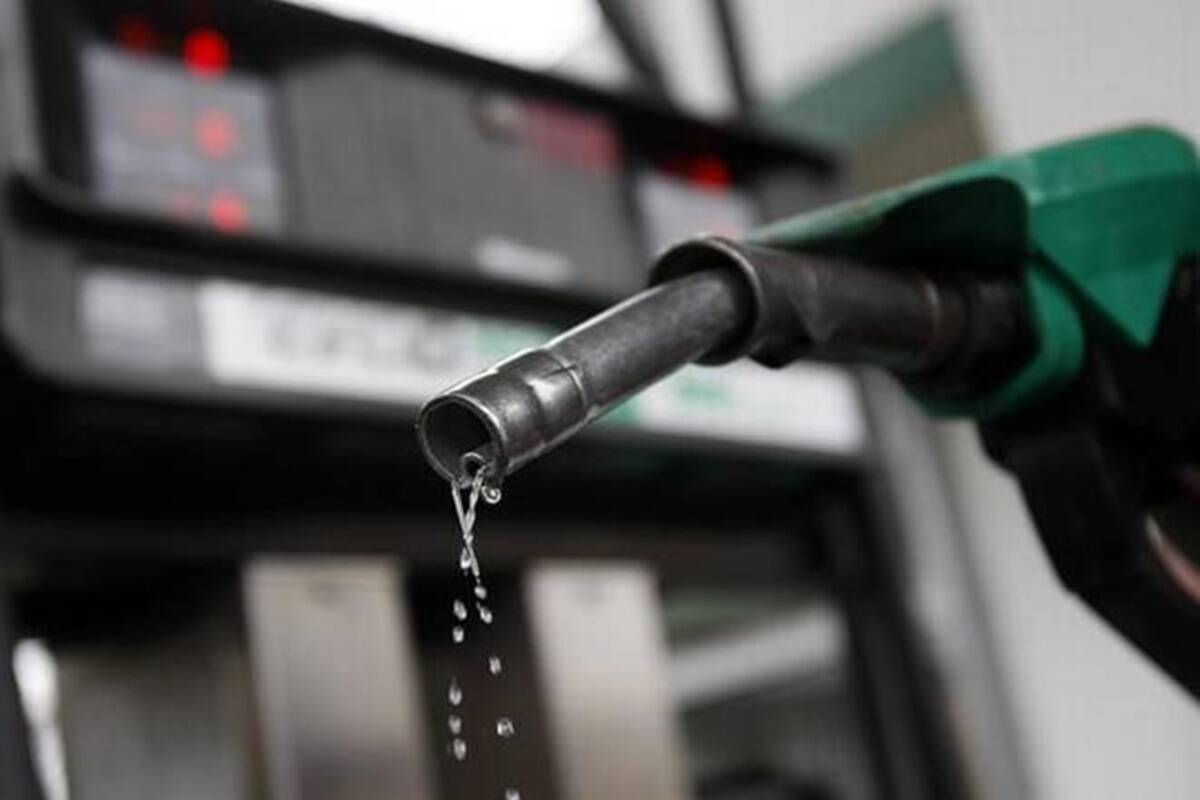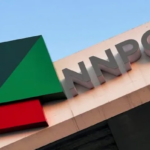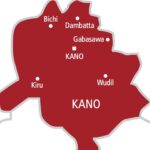The new fuel pump price of N162.44, which was announced last week comes into effect on Monday.
However, the announcement has left many Nigerians confused as to the state of the downstream sector’s deregulation and the federal government’s much-touted fuel subsidy removal.
- Insurgents attack Borno town, perform adhan
- Katsina school bandits’ invasion: How we spent night inside bush – Student
Investors and marketers in the oil and gas sector have also said the federal government is not clear on whether deregulation has been jettisoned with the announcement last week by the Minister of Labour and Employment, Senator Chris Ngige, of N5 cut in a litre of fuel pump price. They urged the government to explain the true situation of things.
After tinkering with the idea for several months, the Muhammadu Buhari-led administration announced in the thick of the coronavirus pandemic that it would no longer pay subsidy on fuel.
The Minister of State for Petroleum Resources, Timipre Sylva, said in May that international crude oil price would be used as the basis for determining pump price in the country, and that marketers would be given the freedom to fix the price however they wanted.
Because of this decision, pump price came down to N121.50 from its previous amount of N123.50 in June.
But Nigerians’ joy was short-lived as the price of a litre of Premium Motor Sprit (PMS) otherwise known as petrol was increased to N140.80 -143.80 in July when the crude oil price spiked. Just recovering from a lockdown occasioned by the pandemic, Nigerians were slammed with another increase in fuel price in August. The price was readjusted to N148 – N150 after the international crude price rose again above $40 per barrel.
In September, the price hit N153 -N158 when the federal government officially announced it had given oil marketers the full liberty to bargain, import and determine how much they would sell petrol to the citizens.
The Petroleum Products Pricing Regulatory Agency (PPPRA) said the full deregulation of the downstream petroleum sector had already begun and the government would no longer fix the pump price of petrol in the country.

Market forces to determine fuel price
At a press briefing in Abuja, the Executive Secretary of the PPPRA, Saidu Abdulkadir, also said this would play out fully when many marketers resume the importation of fuel.
Represented at the press briefing by the General Manager, Administration and Human Resources of PPPRA, Mr Victor Shidok, Abdulkadir said: “government’s pronouncement that the sector is deregulated means that prices would strictly be based on the forces of demand and supply.
“You can have a regulator that always serves as a watchdog to see how these forces are being played out; how the interests of all operators and consumers are taken care of.
“It is a market that is open, based on bargaining power and based on where you source your product.
“Petroleum Products Marketing Company (PPMC) is a marketer; it sells the product and also carries out the analysis as to the price it wants to sell the products to its customers,” he said.
Giving a background on how the price-fixing works, Abdulkadir said the PPMC had been the one announcing the price of petrol over the last few months because it was within its rights to do so as one of the oil marketers and major supplier of the commodity.
He said the PPMC, just like other marketers and importers, would now continue to determine the prices at which they would sell to their customers.
According to him, the PPPRA would continue to remain relevant irrespective of the deregulation of the downstream petroleum sector.
The agency also said because of the difficulties in accessing foreign exchange by oil marketers, the PPMC is currently the sole importer of the commodity into the country and announces the prices at which it sells the commodity to oil marketers.
Similarly, Sylva, during an interaction with newsmen in Abuja on September 11, 2020 said government had stopped subsidy payment and full deregulation had begun in the country.
Sylva said, “It is time for Nigerians to face reality and do the right thing. What is deregulation going to do? It is going to free up a lot more money. At least from the very beginning, it will save us up to a trillion and more every year. Already, we have taken off the budgetary provision for the subsidy, which is about N500 billion in the budget.
“Also, we have taken off the excess forex price; that special rate that was given to NNPC, which also came at a cost. So, all the money that we used to defend the Naira at that time to subsidise the dollar will now be freed up for development. I believe that this discussion around subsidy has been a vexed issue that has captured the imagination of this country for a long time now,” the minister said.
He pointed out that past administrations had lacked the political will to deregulate the downstream sector, and remove subsidy despite attempts to do so. He said, ‘‘at some periods, the time was not good for it.’’
The Minister said further, “And why did I say that time was not good for it? Does that imply the time is good for it now? The problem around deregulation is that people must understand first that the product we are talking about is a derivative of crude oil.
‘‘It is refined from crude oil. Therefore, it has a direct relationship with the price of crude oil. If the price of crude oil goes up, then you expect that it would reflect in the price of the derivative.
“So, the best time to achieve this, we looked at was the time when crude oil prices are low so that Nigerians will get the benefit of those low prices.’’
But in a television interview recently, the minister said, “We are still trying to manage this bumpy start. We have not really been able to get to that 100 per cent removal of subsidy from the foreign exchange end.
“If we were to actually take it out completely and allow people to access foreign exchange from the parallel market and allow people to import the product, the price of the pump will even be more.
“The federal government, knowing the impact it will have on the people, decided that they are still going to manage this situation.”
‘Deregulation should be backed by dissolution of existing regulations’
But experts have said to deregulate, there must be a regulation gazette not implied from executive order or in the front pages of newspapers.
“You cannot have an unstructured PPPRA and Petroleum Equalisation Fund (PEF) and claim to have a deregulated downstream,” Lawan Folusho, an economist said.Similarly, Mr Joseph Nwakwue, the Chairman, Society of Petroleum Engineers (SPE) Nigerian Council, argued that the government was yet to deregulate the downstream, especially as there was yet to be an amendment or change in the existing legislative framework.
He said: “To deregulate, the downstream would require change in the existing legislative framework and market structure in my humble opinion.
“We may have set the pump price at cost recovery levels but have not taken the necessary steps towards deregulating the sector.”
No clarity
Oil marketers and experts have said that there is no clarity on the issue.
They said it appeared the federal government had abandoned deregulation and gone back to embrace subsidy payment with the N5 reduction.
A petroleum industry expert, Mr Brown Ogbeifun, told Daily Trust at the weekend that with the N5 slash, the Nigeria’s downstream sector has not been deregulated.
He said pump price increase and decrease should be a factor of market forces, not the government price fixing.
“For me, I don’t believe we have deregulated. We can’t claim to have deregulated and still fix price for marketers. No, it is not done’’, Ogbeifun said.
Similarly, a public sector economist and senior lecturer with the Department of Economics at the Pan Atlantic University (PAU), Dr Olalekan Aworinde, said it was safe to say that oil price is determined by the Nigerian environment as it is an oligopolistic arrangement.
“I think the Nigerian government needs to come out clear because if you claim you are deregulating, it means you are no longer subsidising. Subsidy as we have it in this country is a scam. What we currently have does not explain how the reduced N5 will be sourced. At any rate, it implies a subsidy somewhere and they need to tell us,” he said.
Similarly, an Abuja-based economist, Mr Simon Galadima, said fixing of prices by the government meant there is no deregulation.
“Announcing to the world that deregulation has been introduced, but actual action of the government shows otherwise. This should not be so,” Galadima said. He said the current government has always been subsidising oil prices but has never been bold enough to call it subsidy.
“They call it a funny name like “under-recovery” or whatever. They do not do the usual thing of marketers importing and asking for subsidy payments. The government is now the sole importer. And the subsidy is there,” he added.
A member of Major Oil Marketers Association of Nigeria (MOMAN) also reiterated that the association needed clarity on the government’s pronouncement on fuel price.
The member who pleaded anonymity said the cut in fuel price by the government had made nonsense of deregulation.
Federal government mum
Meanwhile, the federal government has failed to give details on the development.
The Minister of Petroleum Resources declined comment on whether the N5 cut meant subsidy. When one of our correspondents contacted his spokesman, Mallam Garbadeen Muhammad on Wednesday afternoon, he promised to respond to the enquiry sent to him but did not do so that day.
He was again contacted via phone calls on Friday and Saturday, but the calls were not taken.
However, addressing journalists shortly after meeting with labour leaders last Wednesday, Ngige, said the price reduction was not meant to suspend deregulation because it did not affect the price of crude oil but on areas where the Nigerian National Petroleum Corporation (NNPC) as the main importer cut cost like freight cost and demurrage.
He said that the new price slash was a product of a joint committee of NNPC and labour representatives.

 Join Daily Trust WhatsApp Community For Quick Access To News and Happenings Around You.
Join Daily Trust WhatsApp Community For Quick Access To News and Happenings Around You.


